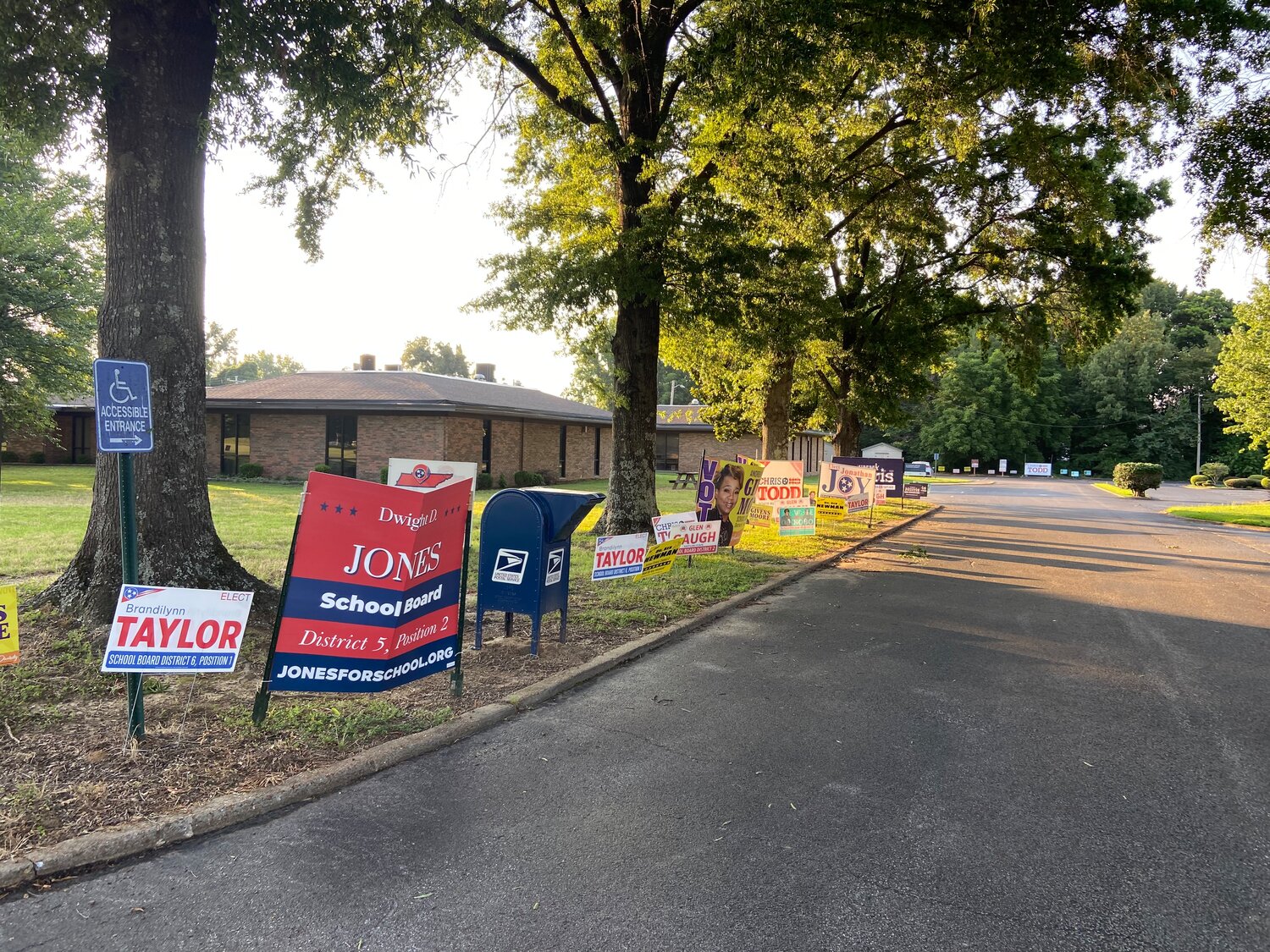OPINION: Hard to complain about local government with 15% voter turnout
Consider this: what if you went to the grocery store and only had 15 percent of the money to pay for the cost of what was in your cart?
How about this: what if you went to a Friday night football game in a 2,000-seat stadium and only 300 people showed up?
Finally: what if you held an election and only 15 percent of the registered voters turned out to cast ballots?
Madison County has recent experience with the latter of those three scenarios. Our just completed August election saw 85 percent of our registered voters stay home.
Not early voting, not an option to vote absentee, no campaign signs or mailers compelled the vast majority of us to take five minutes to step inside a precinct booth.
Choose any of a cornucopia of adjectives to describe that final result. Abysmal, embarrassing, shameful, or distasteful are all descriptive of Madison County’s participation in the political process.
Why? What is keeping voters at home? Three contested school board seats and two State House contests were on the ballot. All of those were to decide people who will make critical decisions for the future of public education and for state legislation that will affect our daily lives.
Here is a brief laundry list of reasons (excuses) pundits, including myself, have suggested are responsible for voter anemia:
Voter fatigue: One theory expressed is that people are weary of multiple trips to the polls. We had a primary election in March. Then, we turned around and started early voting in July for the August 1 election. Look out. We’ll be returning in November for the presidential and Congressional ballot. Unless you are in the inner circle of party politics, you may well be asking, “Why are we having to vote so often?”
Ballot confusion: I have spoken to a number of poll workers who say they regularly deal with people who do not understand why they cannot vote for a certain school board candidate. We have no at large seats on the Jackson-Madison County School Board. Because of that, if your district representative is not up for election, you can’t make your electronic X for the education body.
Voter malaise: The plain truth, without any empirical evidence, is that when 85 percent of registered voters do not show up, a significant percentage of that number just plain don’t care.
Disappearance of public forums for candidates: Not a solitary head-to-head event was sponsored either on broadcast, cable, or streaming television for candidates to present their views and platforms. I lay the blame on video organizations for failing to see a need or responsibility to offer forums that could allow voters to see incumbents defend their records, or challengers make a case as to why they would be better.
Identity confusion: I encountered some people the day after the election who said they didn’t vote because they didn’t know who the candidates were on the ballot. That may be the fault of the voter for not doing his or her homework; however, the absence of the aforementioned public candidates’ forums could have created at least names, faces and philosophical perspective for residents.
Those are five primary reasons that appear to be keeping people at home on Election Day. However, I will offer another.
Jackson and scores of other communities across America are missing a vital component that was a catalyst to bring out voters in the past: the loss of a vibrant, active and involved daily newspaper.
When The Jackson Sun was a robust and community-active journalism entity, fully staffed and with a strong subscriber base, people paid attention to elections. I submit that when the newspaper’s editorial staff endorsed specific candidates, people were spurred to go to the polls to either “prove those idiots wrong” when their candidate was not endorsed. If The Sun supported a voter’s choice for an office, that constituent was more likely to show up on Election Day.
Those days are gone. Television stations once offered spokespersons for the management to present editorials expressing the company’s view on local issues, including candidates. Don’t hold your breath for those days to return. Broadcasters shy away from political endorsements today, often for fear of losing advertisers.
After an election more than a year ago, two men cornered me at Lift Wellness Center. They were angry over their candidate for a local office, in their minds a shoo-in for the seat, losing by a surprisingly large margin.
“He knows more about Madison County than anybody who lives here! What is wrong with the people in this town?” the man asked.
In that election, more than 60 percent of the voters stayed home. I responded, “When a majority of the registered voters stay home, there’s your answer. Your man obviously didn’t get his message across to them, or didn’t compel them to go to the polls.”
When 85 percent of the electorate stays home, as happened in the August 1 election, we have a major problem. Every leader in this community, every elected or appointed official, every broadcaster and journalist, and every registered voter ought to be more than concerned.
The time to start organizing local think tanks to explore how we get people to return to the polls was yesterday. If we don’t do something, we could be on the verge of losing something vital and precious to every community-----our democracy.
Fifteen percent of a county’s registered voters should not be the number determining who makes the decisions for our government bodies, or any others.
Steve Beverly is a former broadcast journalist who’s covered Jackson and West Tennessee for more than 30 years and taught broadcast journalism at Union University until his retirement in 2021.






